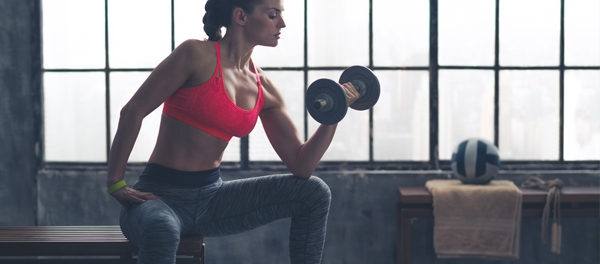The One Secret To Boosting Your Metabolism

Metabolism: what comes to mind when you hear that word? Frustration? Anxiety? Dead End? What if I told you to think about your metabolism in a new way. What if we removed all the emotional connection to the word and just looked at metabolism for what it is: science.
Metabolism is a chemical process, just like photosynthesis or digestion. If we start the conversation with that fact, it might be easier to understand and accept that you can do something about your “slow” metabolism.
By understanding how muscle plays a role, you can learn how to boost your metabolism and make a change for the better.
Simply stated, metabolism is a chemical process that converts the food you eat into energy that you burn during the day. And what do you burn? Calories, of course. A calorie is a unit of energy.
So it would stand to reason that if you burn more calories than you consume, you would lose weight. Now while this is essentially true, it’s more complicated that that.
You see, it’s not just about the movement you make that burns calories. In addition to the calories you burn when you run, bike and swim, we are all set with something called our “resting metabolic rate.” This is the calorie burn that happens when we sit at our desks and work, watch television from the sofa, or even when we sleep. Even when you’re at rest, your body needs energy for all its “hidden” functions, such as breathing, circulating blood, adjusting hormone levels, and growing and repairing cells. According to the Mayo Clinic there are several things that can affect your metabolism:
- Your body size and composition. If you weigh more or have more muscle mass, you will burn more calories, even at rest. So people who weigh more are more likely to have a faster metabolic rate—not a slower one—because a portion of excess weight is muscle tissue.
- Your sex. If you’re a man, you probably have less body fat and more muscle mass than does a woman of the same age, so you burn more calories.
- Your age. As you get older, your muscle mass decreases, which slows down the rate at which you burn calories.
Excerpted from weighttraining.about.com











Leave a comment
You must be logged in to post a comment.